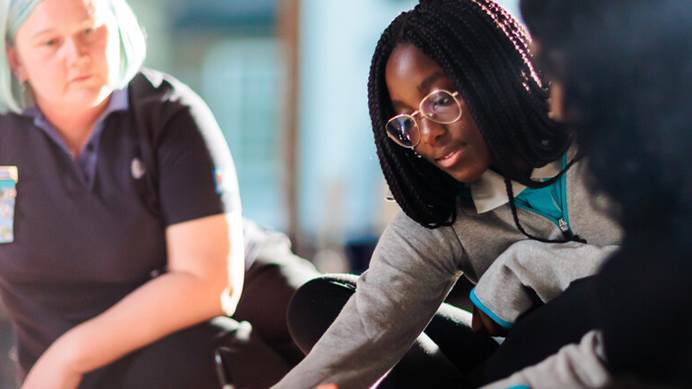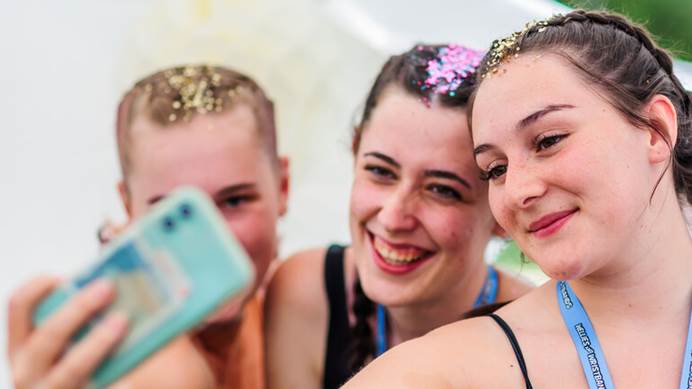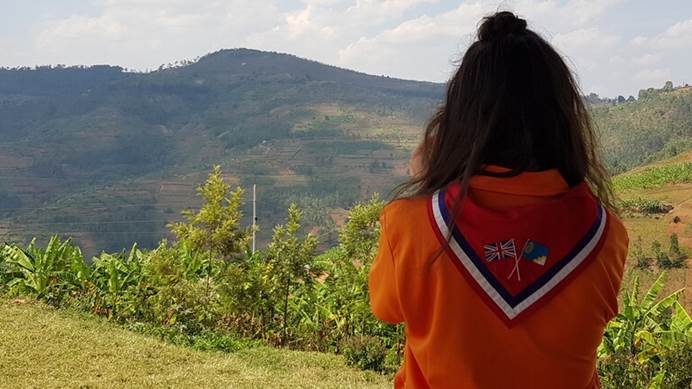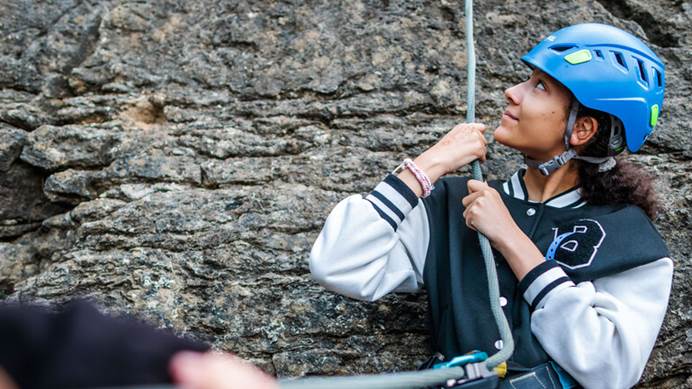Faith and belief
What you can do to include girls of all faiths and none in guiding.
Spiritual development is a key part of Girlguiding's programme.
Girlguiding is open to girls from all backgrounds and beliefs. This includes girls with no faith or who have a non-religious belief system.
It's important to think in advance about how you will make sure that girls from all faiths, and none, will be included in your unit.
This can mean taking a more bespoke approach. If you need some specific advice or can't find the guidance you need here, get in touch with your local commissioner or email [email protected].
First impressions matter
Think about how your unit looks to new or potential members. Holding meetings in a place of worship, or attending religious events, might make it look like your unit is for girls of only one faith. Think about how you can make it clear that your unit is open to all girls
Talk about all beliefs
Make sure that girls from all faiths and none are understood and made welcome in your unit. There are places within the programme to discuss differences in beliefs - an evening on the promise would provide an ideal opportunity.
Don't just refer to one faith during unit meetings and activities. For example, doing a reflection or song that refers to a god wouldn't be inclusive for everyone.
Don't focus on one faith
Don't just refer to one faith during unit meetings and activities. For example, doing a reflection or song that refers to a god wouldn't be inclusive for all girls.
Think about when your unit meets
Particularly where this may clash with religious activities of faith groups in your community. For example, some members may not be able to attend meetings on a Friday night for religious reasons.
Ask questions
Remember to always talk to the young member and their parent or carer before making any assumptions. If a volunteer, parent, carer or girl has told you about their religious beliefs, it is useful to ask questions to make sure you understand how to include them in guiding.
This can include:
- Do they have any dietary requirements?
- Is there anything that you need to consider when planning the programme, for example, activities that they would not be able to take part in?
- Are there days that they won’t be able to attend for religious reasons?
- Are there any fasting days they participate in?
Give as much information as possible
Always give members all the information about events, including who will be attending and what activities are planned. This will allow for them to make an informed decision about whether they attend.
Planning is key to including all faiths at residentials.
Some additional considerations may be needed to ensure that members from all religious and cultural backgrounds are able to attend and fully participate in residential opportunities.
As you plan for your time away, spend time thinking about any traditions in your unit and how these can be adjusted to include everyone.
Try not to make assumptions
Remember that young people are often exploring their own beliefs, ethics and boundaries - they may not share their parents’ beliefs or ethics or be choosing to observe religious practices.
To find out what religious practices girls observe, ask them. Then work together with them and their parents to accommodate them.
Mixed-gender residential events
It may be appropriate to inform parents if there will be boys or men staying on the same site. Make sure that all members are told in advance of the residential event so that they can make an informed decision about attending.
Religious observance
Some members may need to observe religious practices while away on a residential event.
Consider having a quiet space available for contemplation that could double as a space for prayer or meditation, if needed.
Some members may ask to attend a religious service while away on residential events. At some larger or international events this may be available on site.
If this isn’t available, discuss with the member other ways that they can meet this need.
- If the service involves travelling off site, is this possible while maintaining adult to child ratios for the event? Check our guidance on transport if a volunteer is transporting a young member to a service.
- For a weekend residential, would they be able to attend an alternative service, such as an evening service, after the residential event has finished?
- Would it be reasonable for a parent or carer to collect a young member to take them to a religious service?
Catering
When catering for a residential event, consider religious dietary requirements. Make sure that there are options for all girls.
Saying grace
It may be traditional to say, or sing, grace before a meal at a residential event. Consider how this could make members who are from a different faith - or have no faith - feel.
If you'd like to say something before a meal, think of a statement that doesn't make reference to any particular god or faith. For example, 'Let's all take a moment to show gratitude for this food and to remember how fortunate we are to have this meal.'
Individual members may wish to say grace privately before meals.
Songs
Some songs may have faith-based lyrics. Consider how these might make members who are from a different faith - or have no faith - feel. Would it be possible to change the words to songs?
Other songs may no longer be appropriate; they may make members of the unit feel uncomfortable because of lyrical content. Consider whether it’s still appropriate to sing these songs.
Get advice on inclusion
Contact us for more information and advice about including all girls and volunteers in guiding.



